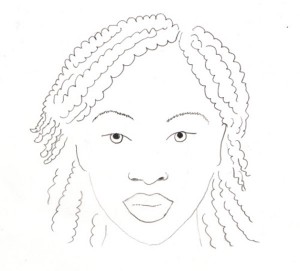Names have meanings. They project the hopes, dreams, and aspirations of fathers and mothers, they follow trends, and foretell the future of their bearers. For Jews many decisions are connected to the naming of a child: should the name reveal his or her religious affiliation, only be recognizable to other Jews, or neither? Will it be a name native to the family’s country of origin or to the child’s country of birth? Has the name been translated? Does it memorialize someone? Colleagues and friends of the Jewish Museum Berlin share their thoughts with this blog, on this and other questions.
Naomi
 My name means “pleasant” in Hebrew, and pleasantly inconspicuous it was in North America of the mid-1970s, where I was born. Naomi ranked neither among the fashionable names like Jennifer, Amy, Melissa and Heather, nor was it as unusual as the names given to the other flower-children of my generation, such as Blossom, Charisma, Summer, or Echo.
My name means “pleasant” in Hebrew, and pleasantly inconspicuous it was in North America of the mid-1970s, where I was born. Naomi ranked neither among the fashionable names like Jennifer, Amy, Melissa and Heather, nor was it as unusual as the names given to the other flower-children of my generation, such as Blossom, Charisma, Summer, or Echo.
Referring to the Biblical story of Ruth and Naomi, the name is popular among Jews. Among my namesakes are the Jewish social critics Naomi Klein (1970) and Naomi Wolf (1962). Yet Naomis were not exclusively Jewish – see for example the actresses Naomi Watts (1968) and Naomie Harris (1976). Many were summer babies, like me. It is a Jewish custom to name children after the Biblical stories read around the time of their births, and the story of Ruth and Naomi is read on Shavuot, a summer holiday.
In the 1980s, my family moved to Berlin. As opposed to Toronto, my name was virtually unknown in the pre-reunification enclave. With its unusual combination of vowels, it was also phonetically dissimilar from popular names like Nicole, Stephanie, Kathrin, and Claudia. A boy who had trouble pronouncing it once asked me whether I was named after a candy called Maoam.
The reputation of my name changed dramatically in 1988. That year, an eighteen-year-old model with African, Jamaican and Chinese roots called Naomi Campbell entered the German consciousness in magazine spreads, fashion advertisements and interviews. From one day to the next, my name conjured up the Gauguinian exoticism she represented.
At first, Naomi Campbell made my life easier. I have never since needed to spell out my name. But Naomi Campbell soon brought me trouble of a different sort: By the mere sound and spelling of my name, I aroused the interest of xenophiles, whose expectations my pale complexion quite clearly disappointed.
Naomi Lubrich, Media